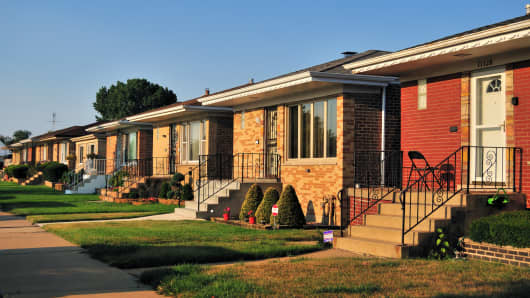Ben Bernanke and the US Federal Reserve have done all that mere mortals can do to repair the housing market post-financial crisis, but despite tarting up the mortgage industry like Cinderella for the ball, buyers are not jumping into the golden carriage to attend the best party ever staged.
How can this be, when house prices are supposedly climbing across the States? The latest Case-Shiller Index was up more than 12 per cent over the past year. The devil is in the detail – the most recent month-on-month increase slowed to just 0.6 per cent, and it is who is buying that is relevant.
Those who can afford to upgrade or buy a second home are doing so, with private equity and hedge funds bolstering transactions. But the average American is still cleaning up their balance sheet, using cheaper 30-year fixed mortgages to refinance. Insiders say the balance between those taking out mortgages in the purchase money market to buy properties versus refinancing is far from healthy, with a skew to the latter.
Others not on the property ladder are having hopes of home ownership dashed as interest rates and prices climb. Many now hand over a regular rental cheque to the likes of Blackstone, the biggest owner of single family homes in the US.
Why is this important? Because it tells a tale of the struggle that the Fed is facing when it agonises over the data to decide when to begin tapering QE. The US government shutdown has created some distraction – and even stopped the data flow – but tapering remains the ultimate worry.
(Read more: Government shutdown could slow housing recovery)
Unfortunately, both the Fed and the government want out of the mortgage market at the same time. The Fed wants to taper, and President Obama wants to wind down Fannie Mae and Freddie Mac, the mortgage finance companies taken over by the government a few years back. These entities, along with government agencies, guarantee 90 per cent of all mortgages, as US banks say they can't make money from the low interest rate environment, and provide products like the very low rate 30-year fixed mortgage popular with homebuyers.
So interest rates have to rise sharply for the US to encourage private capital to take over from Fannie and Freddie. We also witnessed the money market race ahead and lift 30-year interest rates in a taper experiment when they expected QE to be wound down in September.
It is not a stretch to understand why Bernanke is worried about higher interest rates snuffing out the housing market – once the missing piston in the U.S. economic recovery.



